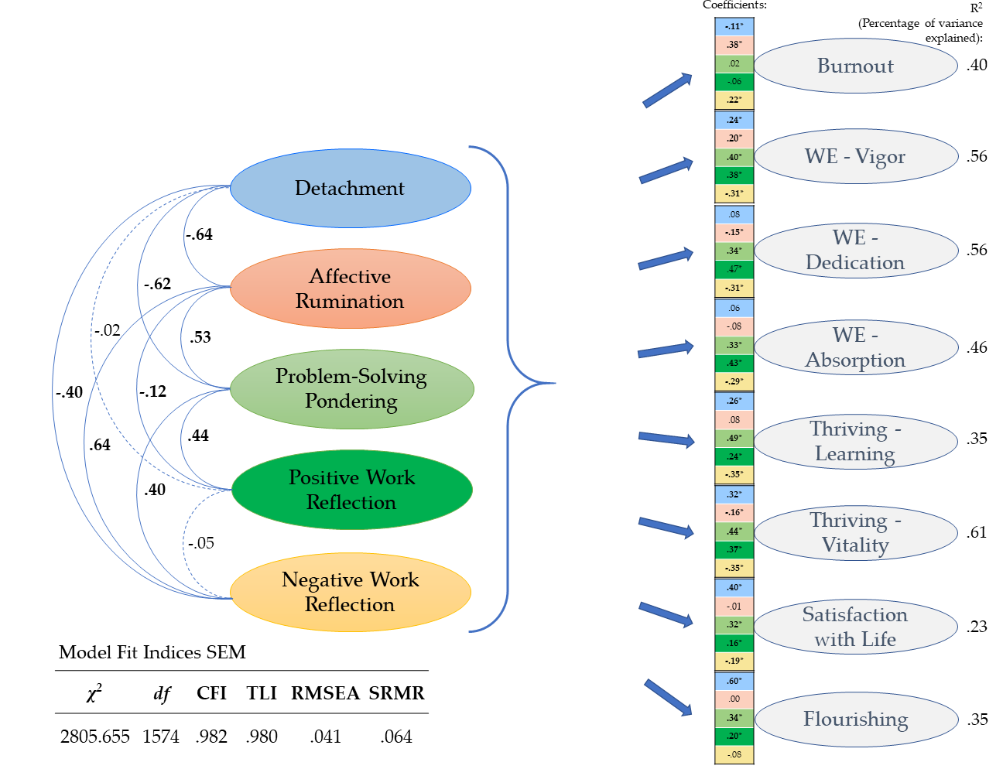In the literature on occupational stress and recovery from work several facets of thinking about work in off-job time have been conceptualized. However, research on the focal concepts is currently rather disintegrated. In this study we take a closer look at the five most established concepts, namely (1) psychological detachment, (2) affective rumination, (3) problem-solving pondering, (4) positive work reflection, and (5) negative work reflection. More specifically, we scrutinized (1) whether the five facets of work-related rumination are empirically distinct, (2) whether they yield differential associations with different facets of employee well-being (burnout, work engagement, thriving, satisfaction with life, and flourishing), and (3) to what extent the five facets can be distinguished from and relate to conceptually similar constructs, such as irritation, worry, and neuroticism. We applied structural equation modeling techniques to cross-sectional survey data from 474 employees. Our results provide evidence that (1) the five facets of work-related rumination are highly related, yet empirically distinct, (2) that each facet contributes uniquely to explain variance in certain aspects of employee well-being, and (3) that they are distinct from related concepts, albeit there is a high overlap between (lower levels of) psychological detachment and cognitive irritation. Our study contributes to clarify the structure of work-related rumination and extends the nomological network around different types of thinking about work in off-job time and employee well-being.

